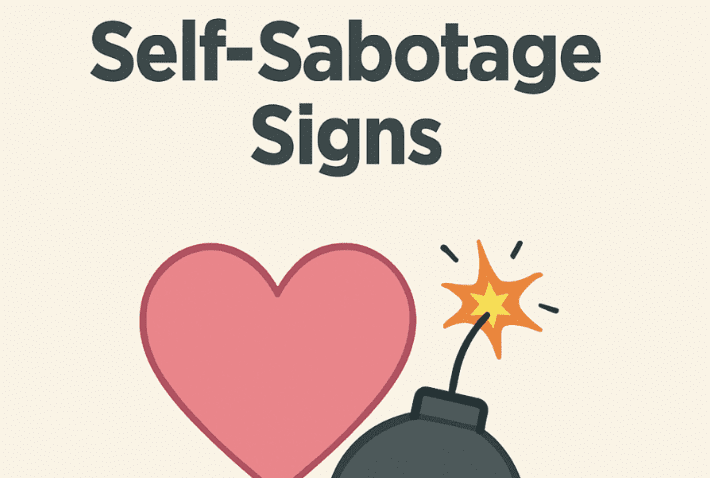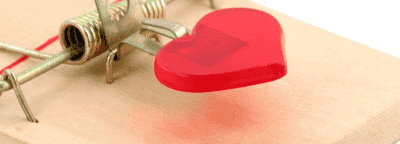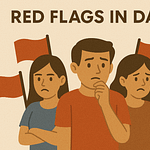
Are You Sabotaging Your Own Love Life? Here’s How to Stop
💔🏃♀️
Have you ever caught yourself thinking, “Why do my relationships always end the same way?” Or maybe you feel stuck in a loop — meeting someone new, feeling hopeful, then watching it all slowly fall apart. If that resonates, you’re not alone. Many people unknowingly fall into the trap of dating self-sabotage — a pattern of behaviors that quietly but powerfully disrupt the chance for real connection.
The good news? These patterns aren’t permanent. Once you recognize them, you can rewrite the script.
What Is Dating Self-Sabotage?
Dating self-sabotage is when someone — either consciously or unconsciously — acts in ways that push love away. It might look like chasing people who are emotionally unavailable, picking fights over small things, or ghosting someone just as things start to feel real. At its core, it’s fear disguised as protection.
“Self-sabotage is a subconscious way we keep ourselves in the known — even if the known is painful. It’s safer than the unknown.” — Dr. Nicole LePera
Sneaky Signs You Might Be Self-Sabotaging
- Fear of Intimacy: You find yourself pulling away when someone gets close. You might say, “I’m just not ready,” even when things are going well.
- Overthinking Everything: You reread texts a dozen times, analyzing punctuation and tone. One unanswered message and your mind spirals: “They’re losing interest.”
- Attracted to Emotionally Unavailable People: You’re drawn to people who can’t commit — long-distance, emotionally closed off, or already in a situationship.
- Negative Self-Talk: You think, “I’m not good enough,” and sabotage healthy opportunities before they begin.
- Creating Drama: You pick fights or push people away just as things are starting to feel real or peaceful.
Where Does It Come From?
These habits don’t appear out of nowhere. Dating self-sabotage is usually a survival mechanism developed in response to earlier life experiences.
- Low Self-Worth: If you don’t believe you’re lovable, you may unconsciously push people away before they can hurt you.
- Past Trauma: Emotional wounds from past relationships or childhood can make you constantly expect abandonment.
- Fear of Vulnerability: Letting someone really see you can feel terrifying, so you stay emotionally distant.
- Attachment Style: Insecure or avoidant attachment rooted in childhood can impact how you show up in love as an adult.
The Hidden Cost of Self-Sabotage
These behaviors aren’t harmless — they can leave long-term emotional damage.
- Emotional Burnout: Constant false starts leave you feeling drained and discouraged.
- Missed Connections: You might walk away from someone who was actually good for you.
- Negative Reinforcement: Each failed relationship confirms a toxic belief like “love never works for me.”
- Loneliness: Pushing people away creates isolation, even if you’re constantly dating.

How to Identify Your Patterns
1. Journal Your Dating History
Look back on past relationships. Reflect on when and why things ended. Ask yourself:
- What triggered conflict or withdrawal?
- Are there repeated patterns or themes?
- How did I feel at each turning point?
2. Identify Emotional Triggers
What moments make you want to shut down or escape? Is it after intimacy, commitment talk, or when things are too good to be true?
Breaking the Cycle: How to Stop Sabotaging Your Love Life
- Replace Negative Self-Talk: Instead of “I always fail,” say “I’m learning how to grow in love.” Words shape beliefs.
- Get Comfortable with Discomfort: Growth feels awkward. Let yourself sit with the discomfort of receiving care without shutting down.
- Build Emotional Intelligence: Pause before reacting. Ask: What am I feeling? What do I need?
- Set Healthy Boundaries: Clear communication about your needs and limits protects both you and your partner.
- Celebrate Progress: Didn’t ghost this time? Had a hard conversation without blowing up? That’s a win!
Consider Getting Professional Help
Working with a therapist or relationship coach can be a game-changer. A professional can help you:
- Heal unresolved wounds
- Develop self-awareness and coping skills
- Break toxic patterns and build better ones
Real-Life Success: Mia’s Story
Mia used to panic when people got close. She’d start fights or ghost good partners without understanding why.
“I thought I just kept choosing the wrong people,” Mia said. “But I realized I was afraid of being truly seen.”
After six months of therapy, Mia learned to name her fears and stop reacting out of panic. She now communicates openly — and is in the healthiest relationship of her life.
Final Thoughts: You Can Change the Story
Your past doesn’t define your future. Self-sabotage is a habit — and habits can be unlearned.
The next time you want to push someone away or assume the worst, pause and ask:
“Is this protecting me, or preventing me from what I want most?”
You are worthy of a love that feels safe, fulfilling, and real. The healing starts with you — and it starts now.







